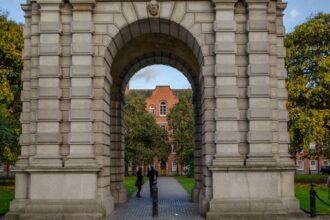Normal ageing is linked with a gradual cognitive decline. However, can we exercise our brains to slow down this inevitable process? A collaborative effort by researchers from the University of Geneva (UNIGE), HES-SO Geneva, and EPFL has unearthed that engaging in and listening to music can positively affect cognitive decline in healthy older adults by encouraging the growth of grey matter. To substantiate their findings, the team monitored over a hundred retirees without experience with musical practice. These individuals participated in piano lessons and music appreciation courses over six months. The outcomes of this research, published in NeuroImage: Reports, shed new light on approaches to support healthy ageing.
The brain is a dynamic organ that continually reshapes itself throughout our lives, adapting its morphology and connections based on environmental stimuli and experiences, such as learning new skills or recovering from a stroke. Yet, our brain’s plasticity or ability to change diminishes as we age. Concurrently, the brain experiences a loss of grey matter, the critical region where neurons reside, a process known as brain atrophy. That leads to a gradual decline in cognitive abilities, with working memory—one of the most crucial cognitive functions—being significantly affected. Working memory involves temporarily holding and manipulating information to achieve specific tasks, such as jotting down a phone number or translating a sentence from another language.
The study, spearheaded by UNIGE, HES-SO Geneva, and EPFL, demonstrated that musical engagement, through either playing or listening, could stave off the decline of working memory. These activities enhanced brain plasticity and were associated with an increased volume of grey matter. Improvements were also observed in working memory. This research involved 132 healthy retirees aged 62 and 78 who had not engaged in music lessons for over six months.
The study distinguished between practising music and listening to music. Damien Marie, the lead author of the study and a research associate at the CIBM Center for Biomedical Imaging, Faculty of Medicine, and the Interfaculty Center for Affective Sciences (CISA) at UNIGE, as well as at the Geneva School of Health Sciences, emphasized the selection of participants who had no prior musical training to avoid any pre-existing brain plasticity related to music learning that could skew the results.
Participants were divided into two groups, one receiving piano instruction and the other engaging in active listening, which involved recognizing instruments and analyzing musical properties across various genres. Both groups were assigned homework for half an hour daily.
After six months, both interventions were found to have beneficial effects, including increased grey matter in four brain regions involved in advanced cognitive functions, such as areas of the cerebellum linked to working memory. Participants saw a 6% improvement in performance, directly correlated with cerebellar plasticity. Factors such as sleep quality, lesson attendance, and daily practice also positively influenced performance improvement.
However, differences between the groups were noted. For pianists, the volume of grey matter in the right primary auditory cortex, crucial for sound processing, remained stable, whereas it decreased in the active listening group. Despite observing a general pattern of brain atrophy across all participants, Damien Marie noted that musical interventions did not rejuvenate the brain but helped prevent ageing in specific regions.
These findings highlight that engaging in and listening to music can foster brain plasticity and cognitive reserve. The authors advocate for these enjoyable and accessible interventions to be prioritized in policies for healthy ageing. The research team plans to explore the potential benefits of these interventions for individuals with mild cognitive impairment, a transitional stage between normal ageing and dementia.
More information: Damien Marie et al, Music interventions in 132 healthy older adults enhance cerebellar grey matter and auditory working memory, despite general brain atrophy, NeuroImage. DOI: 10.1016/j.ynirp.2023.100166
Journal information: NeuroImage Provided by Université de Genève








